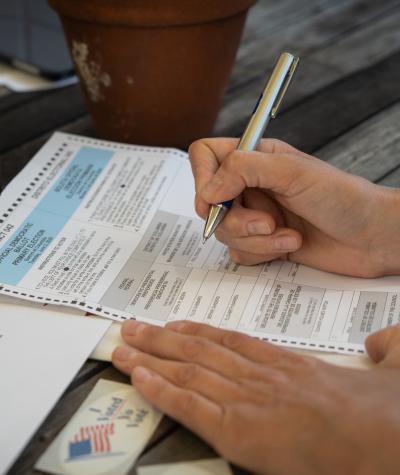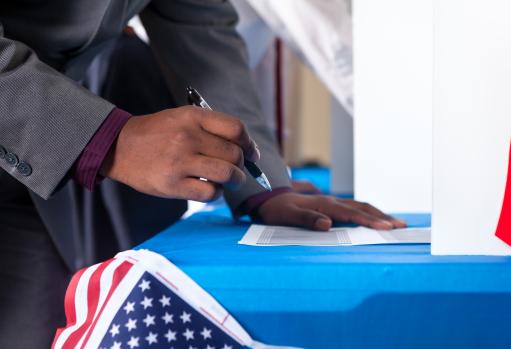Parties in LWV New Jersey v. Way reached an agreement establishing a notice process for mail-in and provisional ballots in New Jersey for the July 7 primary election that would allow voters to fix potential issues with their ballots. Campaign Legal Center (CLC) is joined in the case by the League of Women Voters of New Jersey, the NAACP New Jersey State Conference and three individual plaintiffs.
The agreement will allow voters who cast mail-in and provisional ballots in the state’s July 7 primary election to be notified of ballot issues and given the opportunity to fix them in time for their votes to be counted. As this agreement only applies to the July 7 primary, the case will continue until a permanent resolution is reached.
The lawsuit challenges New Jersey’s signature match system, in which mail-in and provisional ballots are only counted if election officials – who are not properly trained in signature matching – determine that a voter’s signature on their ballot “matches” the signature on their ballot application or voter registration form.
Under this system, thousands of ballots are rejected each election because of issues related to signature or penmanship issues. Currently, New Jersey voters whose ballots are marked as a mismatch are not given a prerejection notice or opportunity to cure any errors. If accepted by the court, this agreement would establish a process that could potentially save thousands of ballots from improperly going uncounted.
CLC and partners are glad that all voters, especially disabled, elderly, and language minority voters, will be able to cast their mail-in ballots safely and with confidence, knowing that their votes won’t be rejected for signature issues without remedy or recourse.
As New Jersey continues to deal with the COVID-19 pandemic, Gov. Phil Murphy announced last month that for the July 7 primary, mail-in ballots will automatically be sent to the state’s active Republican and Democratic voters, with applications for mail-in ballots sent to unaffiliated and inactive registered voters.
In addition, limited polling places will be set up for in-person voting, which will largely occur by provisional ballot. This means that almost every vote cast in the primary election will be subject to signature match. The expected surge in mail-in and provisional ballots underscores the urgent need for procedural safeguards to assure voters that they can cast their mail-in ballots with confidence.

